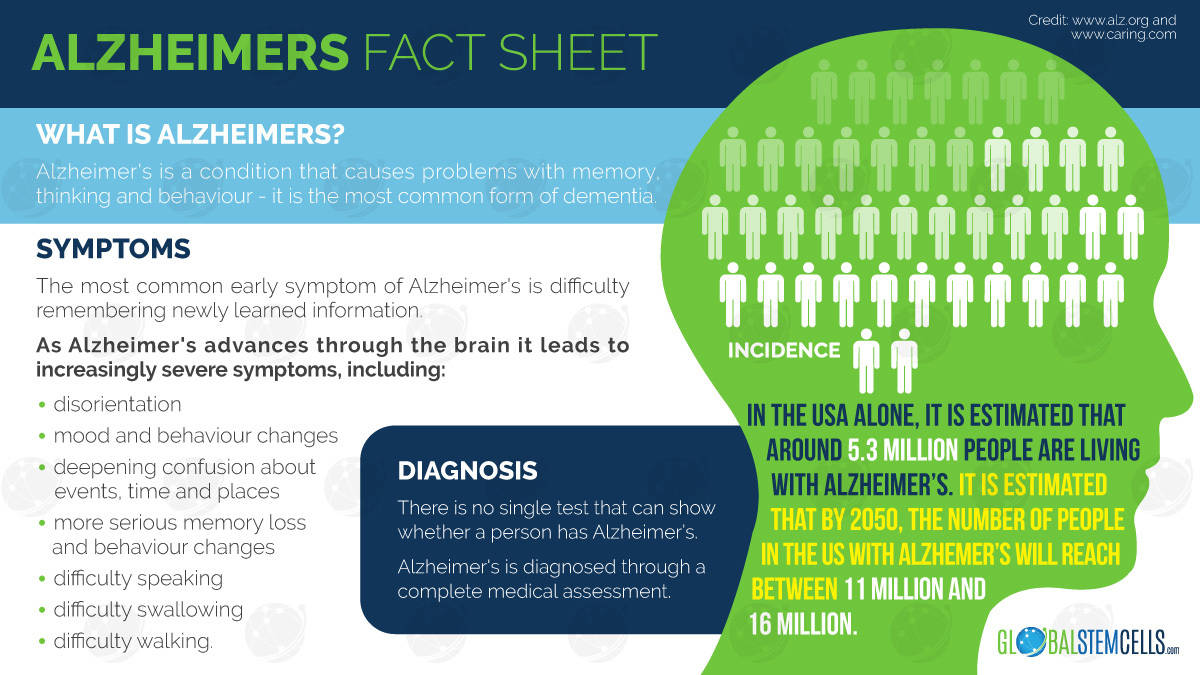Alzheimer’s is a type of irreversible, progressive brain disease that affects the memory and thinking abilities of a person.
It has affected over 5 million people and the 6th leading cause of death in the United States according to the Alzheimer’s Association. This disease was first reported by Dr. Alois Alzheimer between 1901 and 1906.
Alzheimer’s manifests itself gradually and many a times has been confused as a sign of old age. This is not true as 40 percent of people below 65 years of age have been diagnosed with it.
As people grow old, most experience some type of memory loss and may experience difficulties in expressing themselves and language. These symptoms get worse with people suffering from Alzheimer’s. When two sets of people were compared, these symptoms were more pronounced in people suffering from Dementia than of those that did not, for instance while someone may forget the names of people after a long time, patients suffering from it may not remember those names after shorter period.
Alzheimer’s Fact Sheet

Alzheimer’s is caused when certain proteins are formed in the brain cells. The brain contains over 100 billion nerve cells which connect with other nerve cells to create a communication network. Just like other cells in the human body, brain cells require nutrition, they need to get rid of waste, and even regenerate themselves in order to work properly. Scientists believe that this protein accumulation causes plaques and tangles in the brain.
Plaques are protein deposits that build up between nerve cells. Tangles are fibers that form within dying brain cells. Their development causes some inflammatory response that prevents nerve cells from communicating properly, thus killing brain cells.
In a recent study, scientists discovered what could be a possible cure for Alzheimer’s.
In this study, they wanted to understand the safety and feasibility of using human Umbilical Cord Blood Cells in treating Alzheimer’s disease and the effects they would have on the brain. They infused human Cord Blood Stem Cells into the brain tissue of mice that had been modelled with symptoms of Alzheimer’s disease.
They discovered that low doses of Cord Blood Stem Cells infused into the mice reduced the inflammation caused by plaques. This meant that the progression of Alzheimer’s could be slowed and as a result, more studies are ongoing to establish how exactly they work to improve Alzheimer’s disease.
Cord Blood Stem Cells, are rich in multi-potent cells that can make every type of cell in the blood be it red blood cells, white blood cells and platelets, some of which are important to the body’s immune system.
Is it possible to slow down ageing? It widely believed that it is not possible. These findings however give renewed hope to patients that the effects of Alzheimer’s can be slowed down, thus promising a longer life for the patients.
H/T: WebMD




 English
English